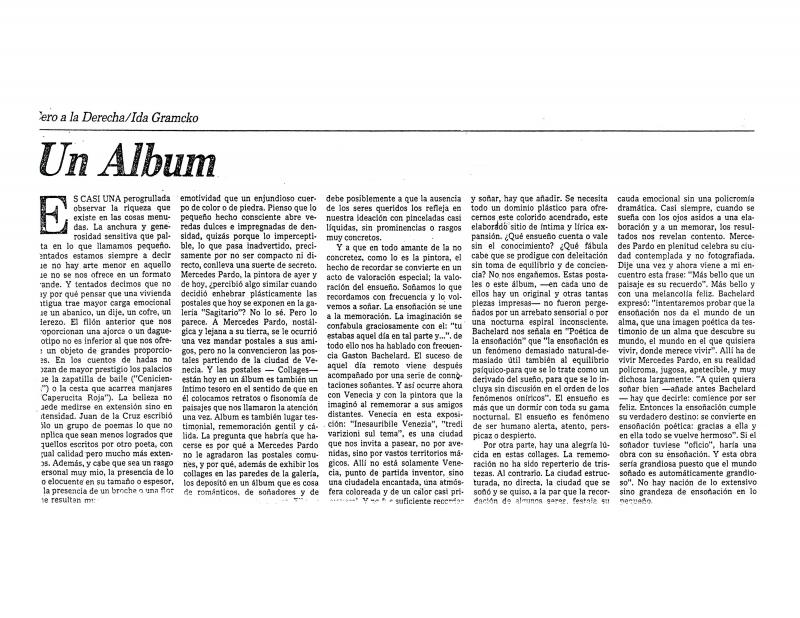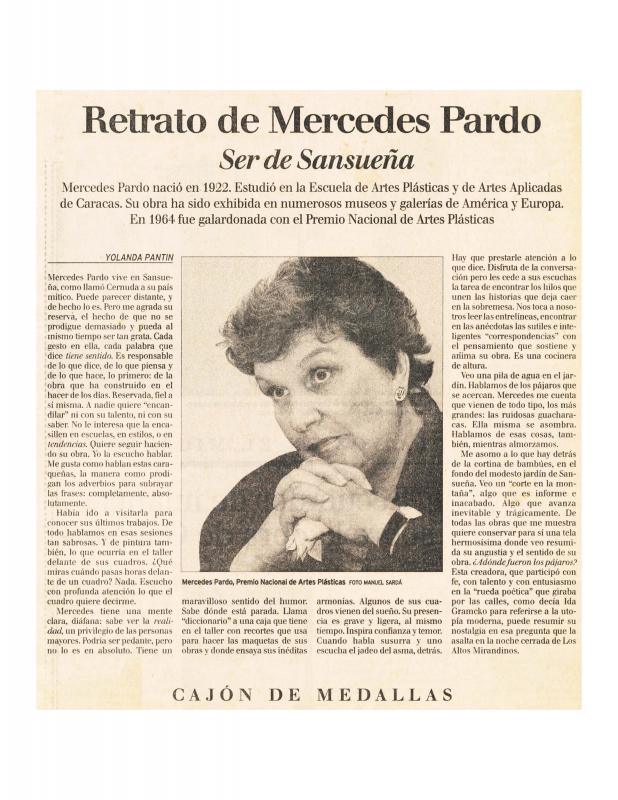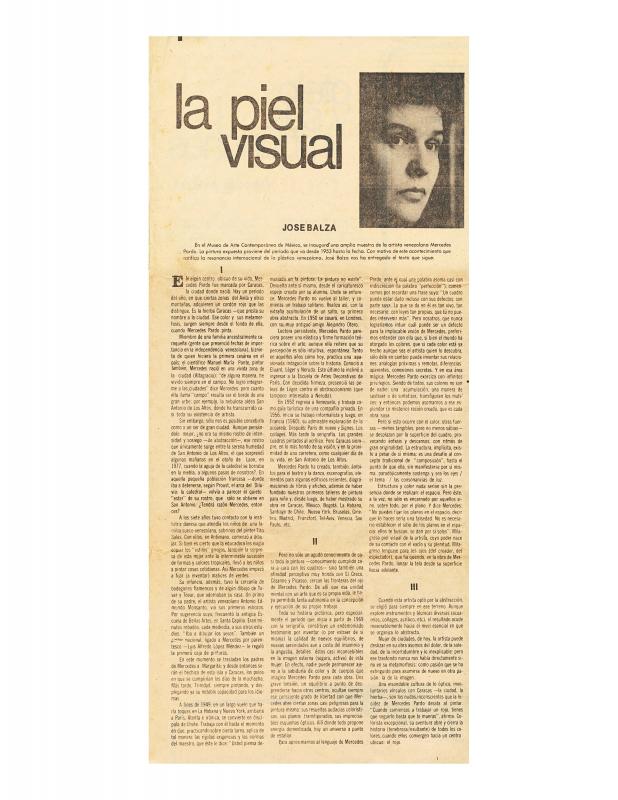The Venezuelan poet, novelist, and journalist Ida Gramcko (1924–1994) writes for El Nacional, due to the attribution of the 1991 Armando Reverón Award for painting to Mercedes Pardo (1921–2005). The article implies a broader reflection on the role of national prizes as well as common misconceptions that consider creativity as an emotional rather than a rational activity. As a winner of the National Prize for Literature, Gramcko reflects on their visibility for artists and ways for younger people to start a dialogue about culture with the awarded ones. This article allows a deeper understanding of the cultural background in which Pardo (and Gramcko herself) are operating as a result of study, knowledge, and intellectual engagement, thus suggesting a misconception of art and culture as a mere release of emotions. The author argues that art is not a “release,” but a daily hard “commitment.” Regarding the Argentinian writer Eduardo Azcuy (1926–1992) and his book El ocultismo y la creación poética (1966), Gramcko stresses that neurosis and psychosis do not enhance creation and applies his ideas to Pardo’s modus operandi, highlighting her search for balance and serenity; it includes committed research on the different facets of abstraction (geometric and non-geometric) and across techniques and supports.
The award is named after one of the pioneers of modernism in Venezuela, Armando Reverón (1889–1954), and is assigned by the Asociación Venezolana de Artistas Plasticos to artists with outstanding contributions in the fields of painting, sculpture, conceptual art, and multimedia art. Its attribution to Mercedes Pardo in 1991 underlines her contributions to modernism beyond national parameters. She received it just months ahead of her retrospective Mercedes Pardo: Moradas del Color inaugurated in October 1991 at the GAN (Galeria de Arte Nacional) in Caracas.
[For another article by the author on Pardo’s work, see the ICAA Digital Archive: Ida Gramcko, “Un Album” (doc. no. 1325250). For other texts on the artists written by Venezuelan literary figures, see Yolanda Pantin, “Retrato de Mercedes Pardo. Ser de Sansueña.” (doc. no. 1330988), and Jose Balza, “La piel visual” (doc. no. 1331740).]



